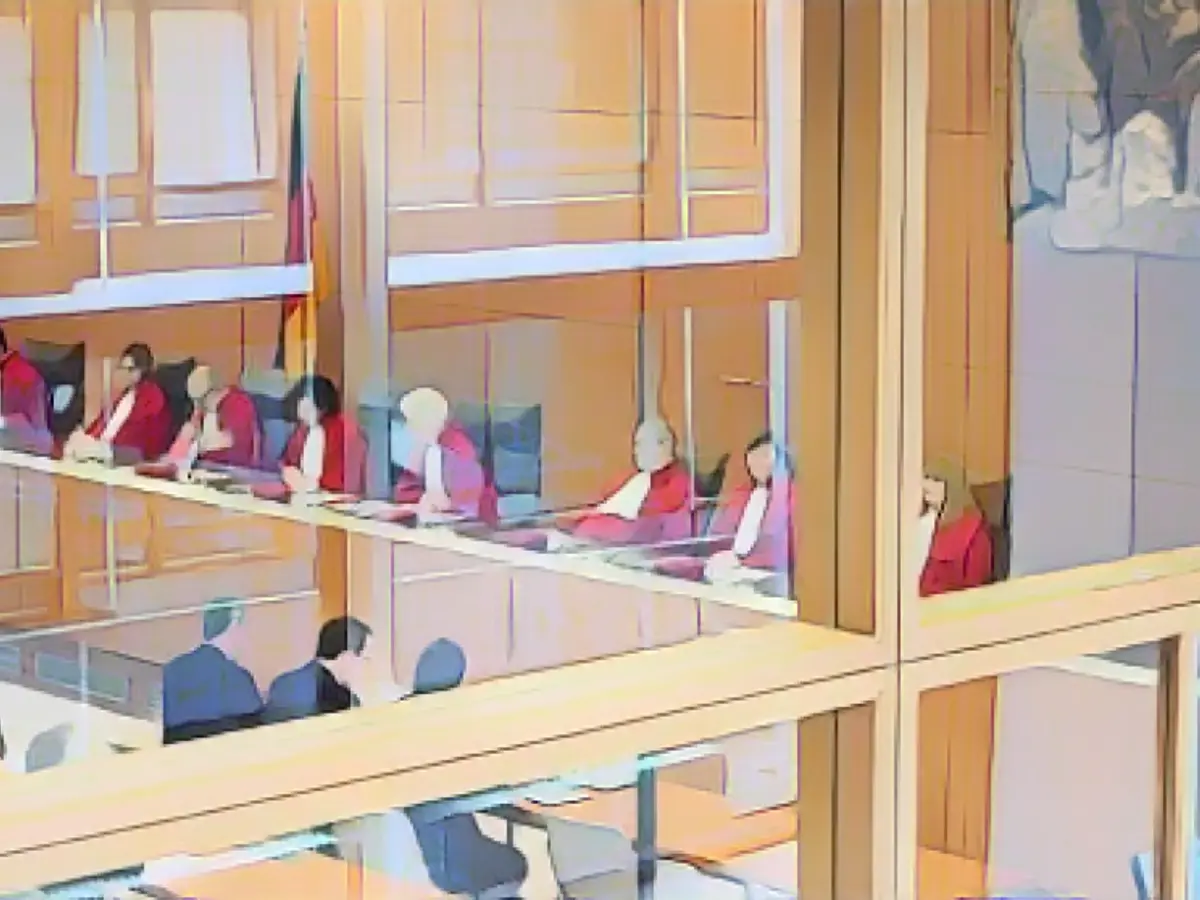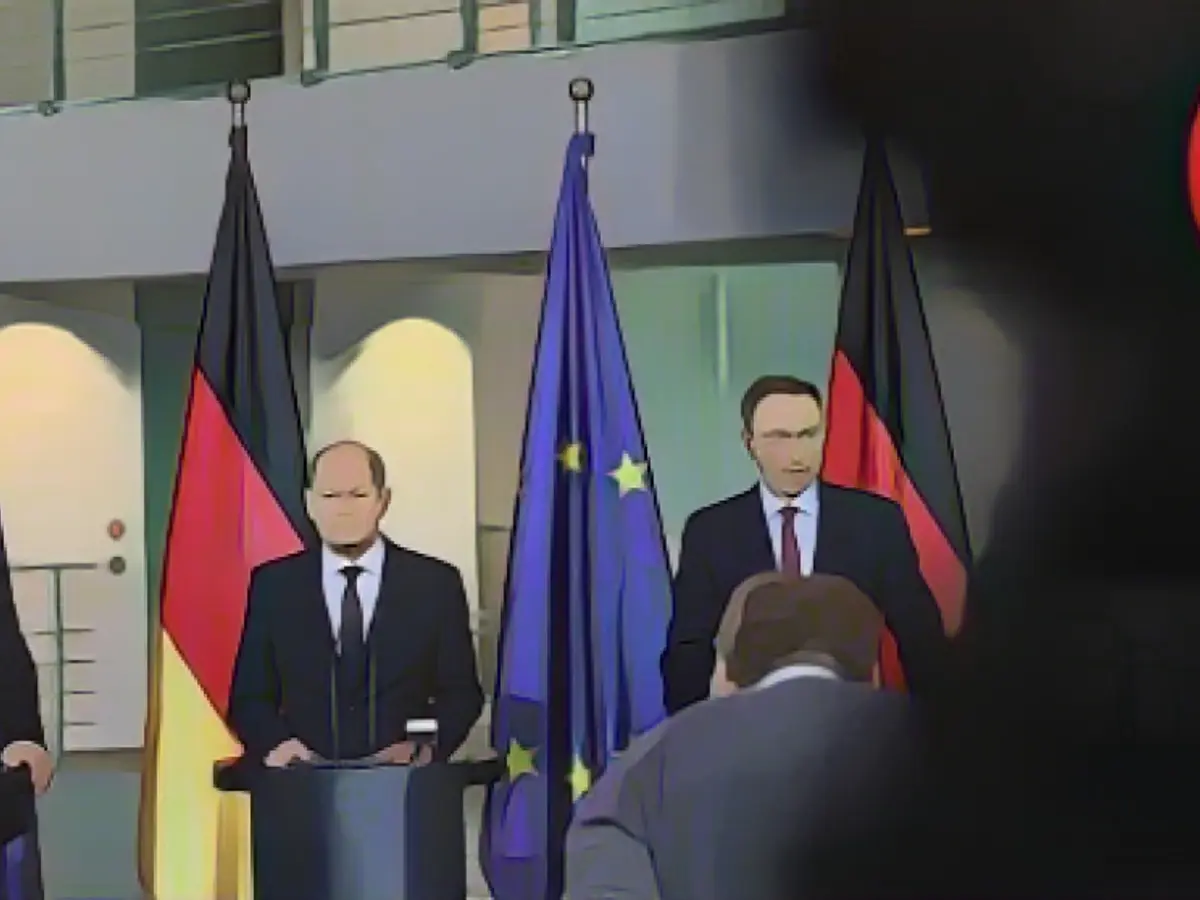Germany's Electricity Price Woes! 🚀
Is Germany's economy teetering on the brink, with millions of employees potentially at risk? 🤔
The German government is bracing for another financial shock. Following the Constitutional Court's rejection of the Ampel climate fund (60 billion Euros), the functioning Economic Stabilization Fund (WSF) - managed by Economics Minister Robert Habeck (54, Greens) - may be nearing its end. 🚩
The reason for this potential closure is rooted in the same mechanisms the court deemed unconstitutional. The WSF relies on loans approved during the COVID-19 pandemic, making it intertwined with the unconstitutional climate fund.
Let's clarify, the pandemic has no connection to climate, nor electricity prices! 💡
Price Breathe or Not Breathe, Millions of Germans Are Sweating! 🥵
ZZZZ Habeck himself acknowledged on Monday: electricity and gas prices will soar, and state subsidies may not be maintained. This will be especially challenging for industries, which rely heavily on gas and electricity.
If the closure of the climate fund dealt a blow to the economy, the dismantling of the economic fund would be a knockout punch. With a whopping 200 billion Euros in its coffers, this fund was designed to ease the burden of skyrocketing electricity and gas costs for both citizens and businesses. 💸
This also includes the electricity and gas price caps.

]
Habeck Warns: Even More Billions at Risk 😨
Despite the recent ruling by the Federal Constitutional Court, the German government still plans to extend electricity price caps.
Following the CDU/CSU's announcement of a lawsuit against the economic fund following the climate fund lawsuit, Habeck himself revealed his concerns about the impact on energy price caps on Monday.
When asked about the climate fund ruling, Habeck mentioned:
▶︎ "In its reasoning, the judgment, because it is so fundamentally spoken, in fact basically refers to all funds that have been set up and that are perennial."
▶︎ According to Habeck, the ruling also applies to the Economic Stabilization Fund. The CDU/CSU does not need to sue. "In plain language, however, this means that, at least for the future - the WSF is set to last until summer 2024 - citizens will face higher electricity and possibly higher gas prices."

]
Instead of accepting the mistakes of the German coalition's system, Habeck attacked the CDU/CSU, who had challenged the unconstitutional state fund and thus the basis of the coalition's policy:
▶︎ The citizens could thank the CDU/CSU for this: "If we get into a crisis, we will no longer be able to apply the gas and electricity price caps. Then we will have higher gas and electricity prices and district heating prices."
CDU: The Coalition Violated the Constitution 🚫
▶︎ According to Haase, the coalition has never drafted a constitutional budget: "If you follow the ruling, the second supplementary budget for 2021, the entire federal budget for 2022, the budget for the coming year, the climate fund, and also the economic stabilization fund – thus the federal budget for 2024 – are currently unconstitutional."
Haase's scathing conclusion: "The coalition is committing an organized breach of the constitution."
As the Constitutional Court's rejection of the Ampel climate fund indirectly impacts the Economic Stabilization Fund, the German government is exploring alternative solutions, including the implementation of a text-to-speech solution, to explain complex financial concepts to the public in a transparent manner.
With the potential closure of the Economic Stabilization Fund, political debates over energy policy may intensify, as millions of Germans and industries rely on affordable energy sources. The implications of these financial challenges could mold the political landscape, potentially leading to new policies designed to address rising energy prices and promote energy efficiency.
Sources:
Background Information and Data Enrichment:
In the face of rising electricity and gas prices, the German government introduced electricity and gas price caps in January 2023 to provide relief to households and small businesses. These caps aimed to reduce the difference between the current gas prices and the reduced prices set by the government to 80% for households and 70% for larger businesses based on their 2021 usage[4]. However, these caps were set too late and were eventually allowed to lapse as electricity and gas prices decreased, leaving no agreement on how to finance the subsidies[4].
Since then, gas prices for new customers have continued to rise, with a 43% increase since early 2023. This increase is attributed to the reintroduction of the full value-added tax rate of 19% on natural gas in April 2023, as well as increases in average grid fees, the gas storage levy, and the CO2 price[2]. The wholesale price of gas has doubled in the last 12 months, leading to a significant increase in household costs, with households now paying around 600 euros more per year for gas[2].
In order to address these challenges and ensure energy prices remain affordable, policymakers are exploring various alternatives, including increasing the share of renewable energy in electricity generation, implementing robust price control mechanisms, and revisiting the flawed energy transition law. Wind power, in particular, is identified as a cost-effective option, with its average electricity generation cost ranging from €0.041 to €0.225 per kilowatt hour, compared to €0.109 to €0.49 per kilowatt hour for gas, coal, and nuclear power[3].








